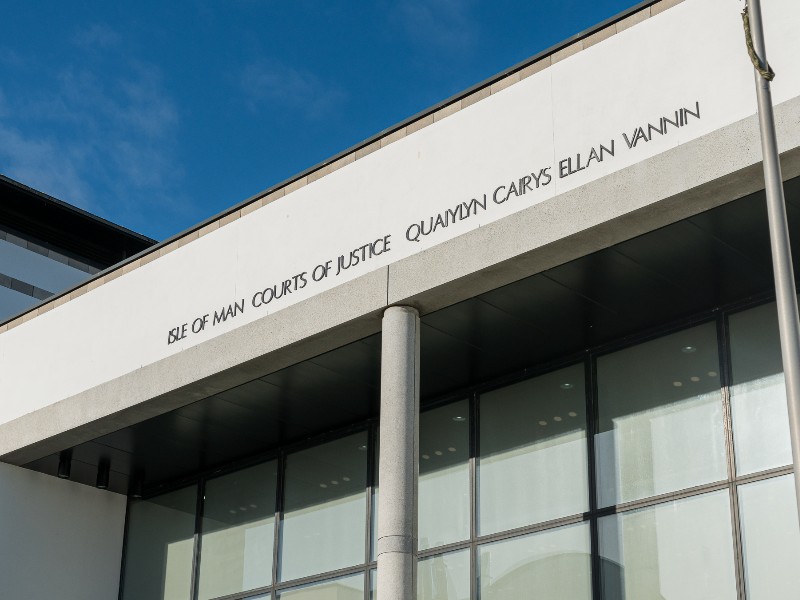
It's after the cost of providing them has decreased
Public sector workers could see an increase in the level of pensions provided by government.
Tynwald will be asked to approve changes to its schemes in December's sitting.
The amendments being proposed are as a result of the Public Sector Pensions Authority's (PSPA) cost sharing valuation in 2022.
It's the first to be calculated under the Public Sector (Cost Sharing) Scheme 2020.
The valuation is said to calculate the cost of providing public sector pensions, and in this case has found the cost has decreased.
Chief Executive of the PSPA, Kathryn Brondon, has been explaining more:
What is cost sharing?
Cost sharing was introduced to share any future costs of providing pensions between the scheme members and their employer.
Historically, if higher pensions benefits are paid or life expectancy rose more than expected, the costs would have fallen to the taxpayer.
However, under this format, the cost is shared with the scheme members.
The cost of providing pensions could have gone up or down, and members would have been affected accordingly.
But Ms Brondon's told Manx Radio why the PSPA is recommending to pass the benefits back to scheme members:
What does this mean?
The results of this first valuation have shown that the cost of providing pensions has decreased.
This means it's cost less to provide public sector workers with a pension than had originally been forecast.
The PSPA has been consulting with Treasury and its stakeholders to decide what should be done with that saving - which is said to be 3.9% in the unified scheme and 13.5% in the teachers' scheme.
In this instance, it's recommending to increase the benefits of the members' contributions rather than decrease the contributions themselves.
This is said to be because the authority doesn't want to impact the cash flow to government.
Chair of the PSPA, Jerry Carter, has been explaining why that decision was made:
Who does it affect?
The changes affect all public sector pension scheme members that are currently contributing to the various pensions schemes.
These include police, teachers, members of the fire service, doctors, nurses, politicians, judiciary and and administration workers.
*Disclaimer: Radio Manx Ltd employees are eligible to join the Isle of Man Government Unified Scheme 2011.
What are the changes?
If Tynwald approves the recommendations, the share for scheme members will be 75%.
For example, this equates to 2.9% of the 3.9% saving identified in the unified scheme, or 10.1% of the 13.5% in the teachers scheme.
The share for the employer will be 25%, which is the balance, and will be used to reduce employer contributions.
If approved, the various schemes would change as follows:
Isle of Man Government Unified Scheme 2011
The accrual rate for all the sections will increase.
For example, the Standard Section accrual rate at age 65 will go up from 1.41% to 1.61% for service built up from 1 April 2024.
Police Pension Regulations 1991
The accrual rate will increase from 1/60th to 1/53rd for service built up from 1 April 2024.
Police Pension Regulations 2010
For pre-April 2018 joiners, accrual rate will increase from 1/70th to 1/62nd for service built up from 1 April 2024
For post-April 2018 joiners, accrual rate will increase from 1/75th to 1/6th for service built up from 1 April 2024
Judicial Pension Scheme 2004
The accrual rate will increase from 1/40th to 1/35th for service built up from 1 April 2024
Teachers Pension Scheme 2025
The saving will be apportioned in three ways:
- An increase in accrual rates:
- For pre-2007 joiners, accrual rate will increase from 1/83rd to 1/70th for service built up from 1 April 2024
- For post-2007 joiners, accrual rate will increase from 1/62.5th to 1/53rd for service built up from 1 April 2024
2. A reduction in contribution rates of 1%
An increase in the cast commutation factor, which is the rate used to exchange a pension for a lump sum, is hoped to go some way to levelling the scheme up with what is provided in the Unified and Police Schemes.
This would go up from £12:£1 to £16:£1.
The total cost of the proposed changes is estimated to be £3.3 million.
Why has the cost gone down?
The PSPA says that since 2012, reforms to how public sector pension schemes are managed have meant employees are contributing more while receiving a lower rate of pension.
These measures are said to have made them more affordable and sustainable for the future.
PSPA chair Jerry Carter says the decrease now demonstrates the reforms are effective and that real-term costs are falling.
However, he admits the Island's economy could also be a contributing factor.
Ms Brondon and Mr Carter have been explaining more:
Why are government schemes improving when there's a funding deficit?
Government says cost sharing looks at addressing and sharing increases or decreases in the cost of providing a future pension for current members and employers.
It is said to be completely separate to the historic funding deficit, or the gap between the schemes' income and expenditure.
The deficit relates to the fact that the schemes are unfunded and have no fund built up to meet the current pensions in payments.
It's also said to be being managed and met from government revenue.
It's predicted the funding deficit will reduce in the long term as the historic, more expensive, legacy pensions mature and are replaced with the reformed, cheaper pensions.
Mr Carter has been outlining this in more detail:
What happens next?
Tynwald members will consider the proposals in December's sitting.
If approved, the changes will go ahead as outlined.
If rejected, Mr Carter says they'll have to come up with a whole new proposal:
You can listen to the full interview with Kathryn Brondon and Jerry Carter below:


 Teenager who stabbed woman nine times jailed
Teenager who stabbed woman nine times jailed
 Financial Times raises "serious questions" over government due diligence in King Gaming case
Financial Times raises "serious questions" over government due diligence in King Gaming case
 Ballig Bridge to Cronk Y Voddy to shut for tree felling
Ballig Bridge to Cronk Y Voddy to shut for tree felling
 Treasury welcomes Bank of England interest rate cut
Treasury welcomes Bank of England interest rate cut